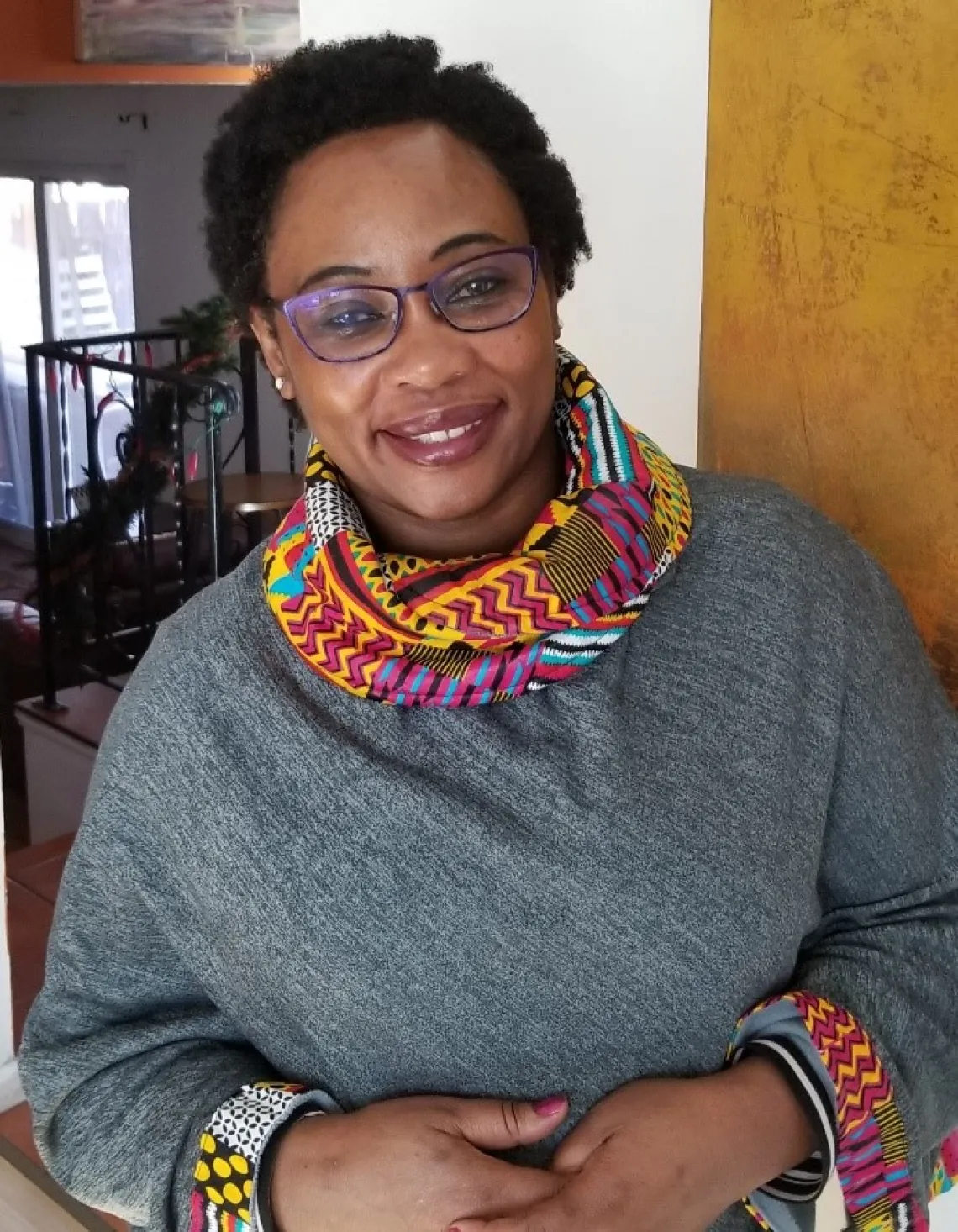Spotlight on Lucy Mugambi - the International Peace Scholarship

Dear Graduate Students,
When I heard that Lucy Mugambi received the International Peace Scholarship, I was delighted. I had previously talked to her and knew about her research. I asked if she would be willing to share her advice for applying for funding and am happy to share her excellent advice below.
Shelley
My name is Lucy Mugambi, and I am a PhD student in the Art and Visual Culture Education Program in the School of Art. I research the intersection between the arts and disability. My current research investigates how creative artmaking workshops contribute to forming interactions and connectedness between disabled students and other students in primary schools in the Eastern region of Kenya. The study also explores how this connectedness can be extended to other parts of the world by sharing the process and products of the workshops. This cross-cultural art exchange aims to help in breaking the social-cultural barriers between disabled students and other students.
Since starting graduate school, I have applied for several grants, some of which were unsuccessful. For instance, in 2020 I applied for the PEO International Peace Scholarship (IPS) but failed. I attribute my failure to not starting the application process early enough which led to preparing everything in a rush. Doing things last minute did not give me enough time for preparation, and so I did not find someone else to provide feedback on my proposal. Also, planning makes it possible to reach out to recommenders with enough time for them to prepare. Applying for a scholarship requires proper planning and effort. Last-minute rushing is a recipe for failure.
However, I have learned that failure is not necessarily a bad thing. Failure also prepares one for success. As I re-applied for the PEO IPS award in 2021, I knew what I needed to do to succeed and was fortunate to get the award. I started the application early enough and gave my proposal to a few people to review. I also gave my referees adequate time to write their recommendation. In the same year, I applied for the GPSC travel grant and was granted the award. Volunteering to be a GPSC grants judge was a major boost to my grant application skills. I learned a lot about proposal writing and organization through this process.
I would advise anyone who has applied for funding, and failed, to never give up. The application process is a way to help you think through your research proposal and keep you on track with research. Here is a summary of my advice:
- Sending applications to multiple funding organizations increases your chances of getting an award.
- Planning ahead provides your referees adequate time to write good recommendations for you.
- Working ahead allows you enough time to find one or two people to review your proposal. Remember that the Graduate Center is a valuable resource in this process.
- Volunteering as a GPSC grant judge is rewarding since it acts as a learning platform for the funding application process, although it may take a little bit of your limited time.
Just go for it!

